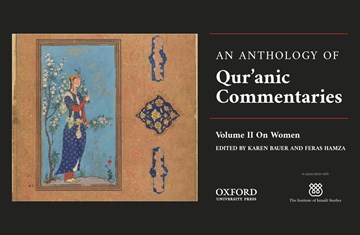New IIS publication focuses on al-Qadi al-Nu‘man’s literary contributions
Between Revolution and State: The Path to Fatimid Statehood by Sumaiya Hamdani examines the historical and juristic works of al-Qadiinfo-icon al-Nu‘man, an Ismaili Muslim theologian and jurist of the early Fatimid period. It provides insights into al-Nu‘man’s writing within the context of the transition of the Shi‘i Ismaili movement to a caliphateinfo-icon in the first few decades of the tenth century.
Al-Qadi al-Nu‘man entered the service of the first Fatimid Caliph-Imam al-Mahdi billah (r. 297-322 AH/ 909-934 CE) in Ifriqiya (present-day Tunisia and eastern Algeria). He served the first four Fatimid Caliph-Imams in various capacities for almost fifty years until his death. An addition to being an important exponent of Fatimid jurisprudence, al-Nu‘man produced historical and bibliographical works directed at diverse constituencies that came under the rule of the Fatimid Empire.
Unlike many other studies on al-Nu‘man’s works, Dr Hamdani’s book explores the zahiri or exoteric context of Fatimid power in al-Nu‘man’s writings; few attempts have been made to assess the Fatimid’s efforts in consolidating religious and political leadership. Dr. Hamdani gives an insight into the transition of the Ismailis from a Shi‘i movement to the rulers of a Muslim Empire.
Dr Hamdani begins with a review of the literature on the Fatimids to date and critically assesses the rise of the Fatimids to power in the 4th/10th century. She then examines the articulations of al-Nu‘man in his zahiri works, and investigates “the reworking of certain Ismaili doctrines into an idiom and form accessible to the diverse elements within and beyond the Fatimid empire.” The first chapter reviews the origins and history of the early Ismailis until the establishment of the Fatimid state in North Africa in the 10th century CE. The author presents this as “the background necessary to understanding the circumstances that generated the zahiri literature of the North African period.” The second chapter examines the socio-cultural-political context that informed al-Nu‘man writings for the Fatimids. The next three chapters study his doctrinal articulations in three subjects: law, as reflected in works such as Da‘a’im al-Islam (Pillars of Islam) and Kitab Ikhtilaf usul al-madhahib (Differences Among the Schools of Law); history and biography, represented by the Iftitah al-da‘wa wa-ibtida’ al-dawla (The Beginning of the Mission and Establishment of the State) and the Kitab al-majalis wa’l-musayarat (The Book of Sessions and Excursions); and code of conduct in the Kitab al-himma fi adab atba‘ al-a’imma (The Book of Etiquette Necessary for the Followers of the Imams).
This new publication is an important contribution to Fatimid history and a unique addition to Islamic studies and thought. The author argues that the administrative, legal, ceremonial and political demands that came with the establishment of an empire are as deserving of serious attention as the spiritual message that the Fatimids sought to spread amongst the Muslims of that age.










